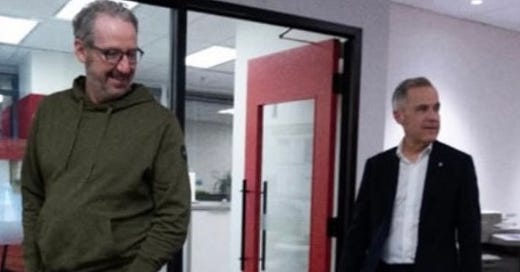Journos can tally up the questions but why can't they ask the Big Ones like who are these guys and how will they keep the West from leaving? Or do they care?
Plus! If Carney doubles the CBC’s funding and allows it to sell advertising, he might as well "line the country’s private broadcasters and newspaper publishers up against the wall and open fire"
Keep reading with a 7-day free trial
Subscribe to The Rewrite to keep reading this post and get 7 days of free access to the full post archives.




